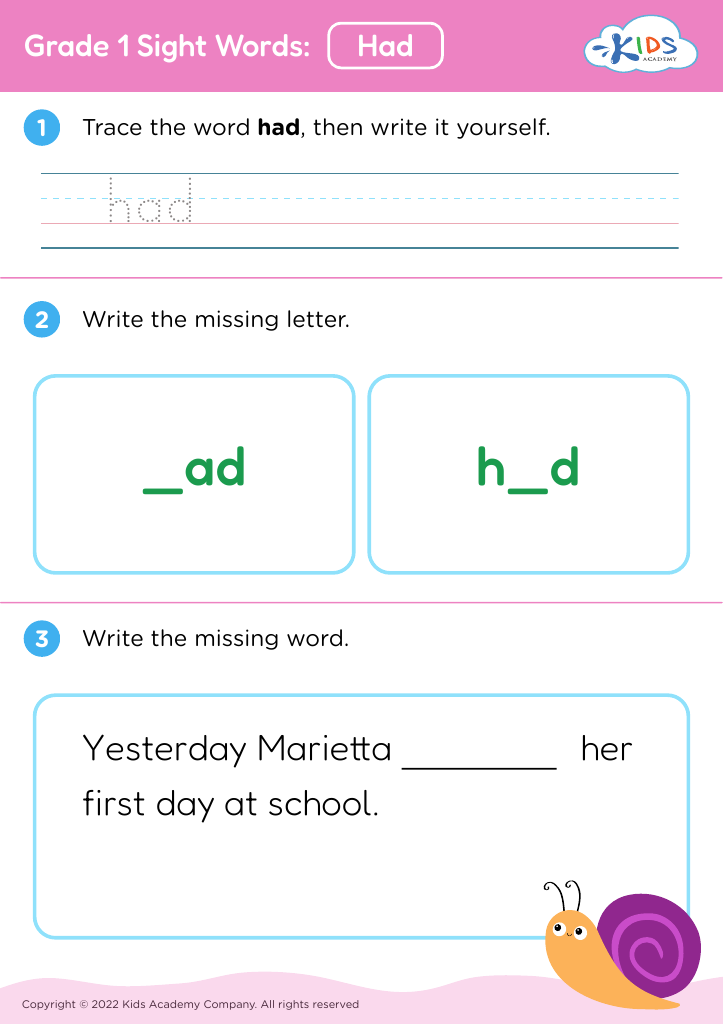Practicing mathematical operations Worksheets for Kids
1 filtered results
-
From - To
Question/Answer
How to train the Practicing mathematical operations skill in Grade 1 students learning about Sight Words?
To train Grade 1 students in practicing mathematical operations with sight words, use flashcards combining simple math problems and sight words. For instance, "2 PLUS 3 EQUALS FIVE." This integrates sight word recognition with math practice. Use games, interactive activities, and regular repetition to reinforce both math skills and sight word familiarity in a fun, engaging manner.
How does the mastery of the Practicing mathematical operations skill affect a student's performance at an early age?
Mastery of practicing mathematical operations at an early age significantly enhances a student's performance by building a strong foundation in math. It improves their problem-solving skills, mathematical thinking, and confidence in handling numbers. This foundational competence is crucial for tackling more complex mathematical concepts and operations in later academic years, leading to better overall academic success.
Why is the Practicing mathematical operations skill important for Grade 1 students?
Practicing mathematical operations is crucial for Grade 1 students because it lays the foundation for future math learning. It helps them develop essential problem-solving skills, understand number relationships, improve logical thinking, and build confidence in handling numerical tasks. Early mastery in these areas promotes academic success and prepares them for more complex mathematical concepts in the years ahead.













